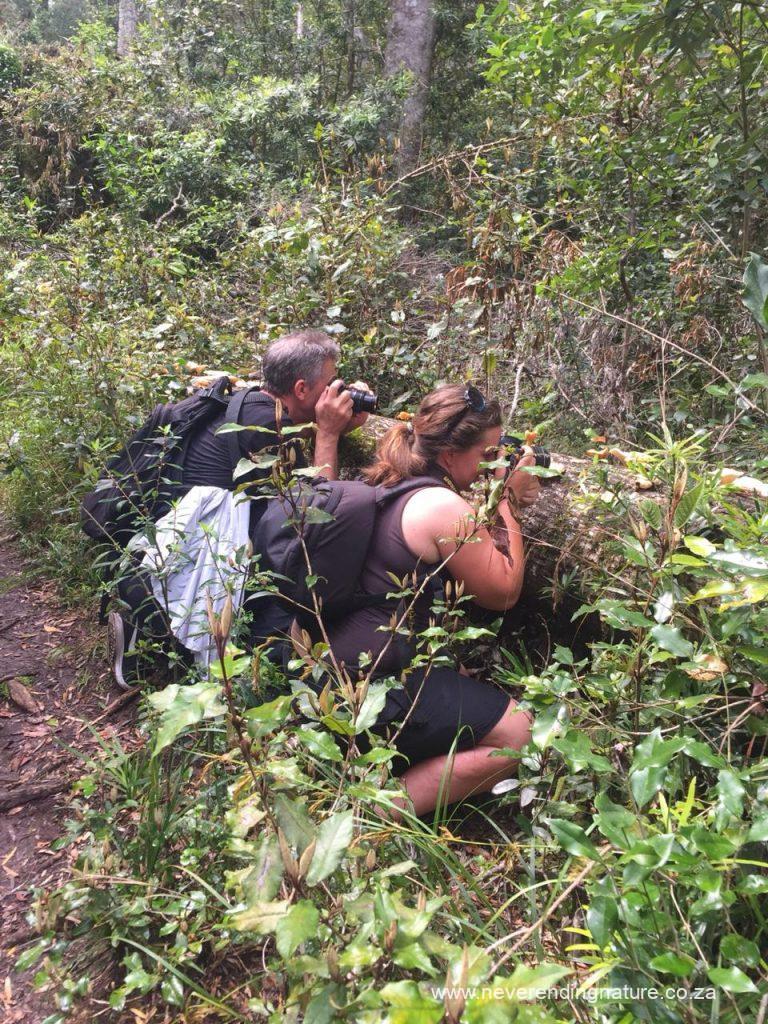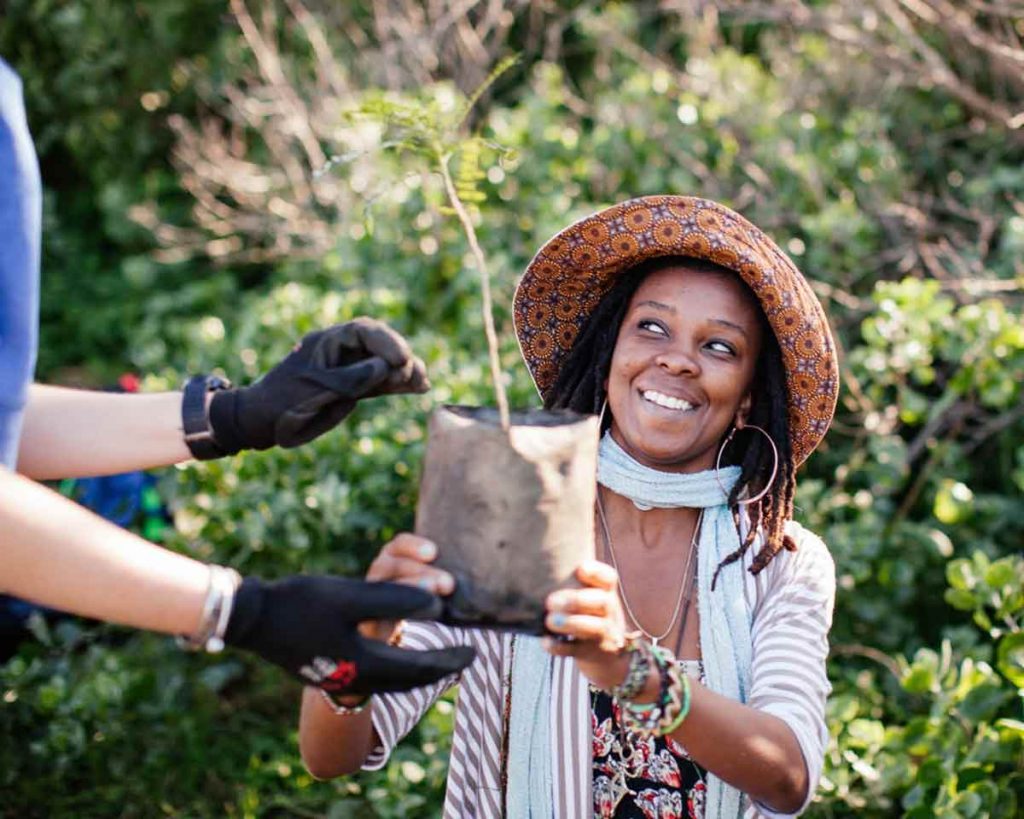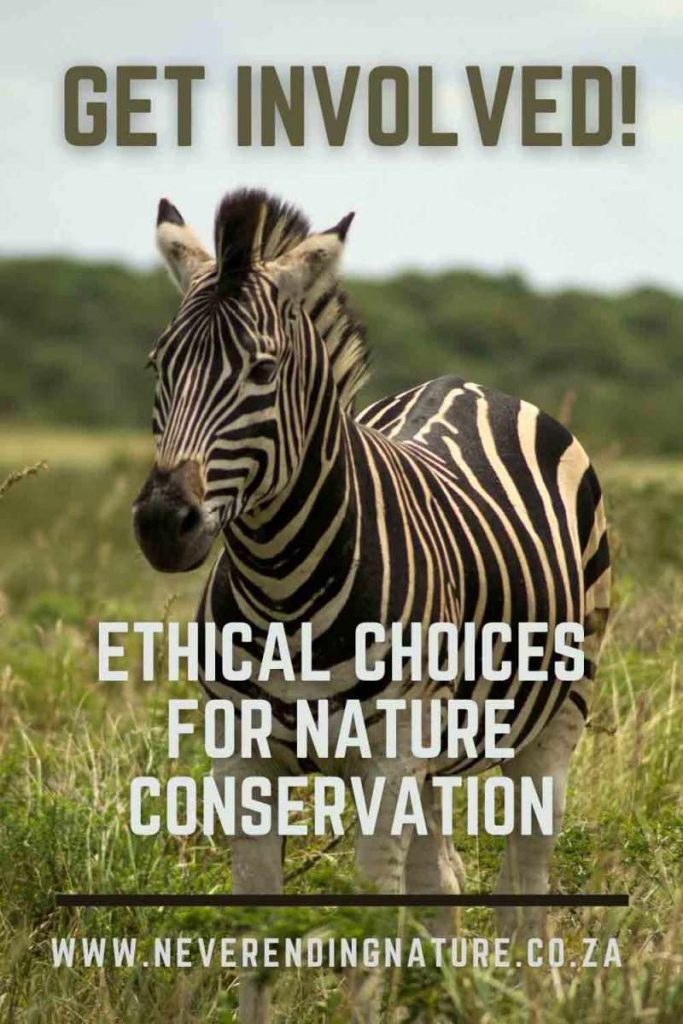Main image: Ron Lach, Pexels.
Did you only realise late in life that you have a passion for conservation, and would love to make a difference? Or perhaps you feel like you want to make a difference in some way or another, but you do not want to give up your career. There is good news.
You don’t need a degree in conservation to make your mark in the world of conservation. You also don’t have to quit your day job to contribute. There are options for you, no matter how you choose to get involved in nature conservation in South Africa. You may want to get your hands dirty, or perhaps even support conservation projects from the comfort of your couch.
How can you make a difference and get involved in nature conservation in South Africa? While the answer should be seemingly straightforward, it is not always that easy. Never-ending Nature made a list with a few options that might help you decide.
Paid for conservation experiences
There is no shortage of paid-for nature conservation experiences in South Africa and further afield. A simple Google search for ‘volunteer conservation work’ will deliver plenty of results painting an idyllic picture of volunteering in Africa surrounded by wild animals. Approach these carefully for many reasons.
Due to the increased popularity of volunteer conservation work, or “voluntourism” as it is also known, there are more options than ever before. Unfortunately, not all of them are ethical. Some of these organisations breed ‘orphan’ animals (they are not orphans) only to make money out of the situation, which is not ethical at all.
Make sure you do your homework thoroughly and select a volunteer conservation option that is ethical. Are there images of volunteers feeding wildlife such as lion cubs with bottles? If so, you should probably steer clear. In South Africa, cub petting and animal interactions are often synonymous with the canned hunting industry. This is not true conservation.
Make sure you pick an institution that will make a meaningful impact. Remember, volunteering for conservation work is not just glamour work.
Handy tip: If an organisation claims to rehabilitate wildlife, always check to make sure that the rehabilitated wildlife (even if not all) is released back into the wild.
Some options for volunteer conservation work
Many organisations use ‘volunteers’ for conservation projects. The funds generated through their participation are crucial to other conservation work and research in the field.
One of the institutions that we are aware of with truly ethical conservation volunteer programmes is Worldwide Experience. Volunteers do actual conservation work and assist on many fronts while getting experience in the field.
They offer group travel experiences, volunteering for ethical conservation projects, and accredited courses. These conservation experiences are ideal for individuals and groups that want to travel overseas and have a meaningful holiday and learn at the same time.

Samara Private Game Reserve in the Eastern Cape near Graaff-Reinet is another good option. Guests can get involved in conservation projects at the reserve, such as rehabilitation, changing collars on wildlife when needed, and more.
Another option I recently saw is at andBeyond Phinda. They offer a 7-day course where you get to participate in game capture, telemetry tracking, veterinary work, bird identification, research analysis, and more. Funds raised will all go to Phinda’s conservation efforts.
The Pilanesberg Wildlife Trust notches the ears of rhino in Pilanesberg for identification purposes. Corporate groups can partake in this activity, covering some of the conservation expenses.
Contact your nearest nature reserve to find out if have volunteers assisting with conservation work. This is a great way to get involved in conservation in South Africa.
Join volunteer organisations
Many conservation bodies have volunteer programmes where the general public can join and help with projects in protected areas.
You won’t get paid for your time, but you will spend time in nature and make a difference.
Activities include trimming trees next to roads, assisting with fundraising events, conducting fence patrols, cleaning K9 units, removing invasive species, and so much more.
The possibilities of work required are virtually endless. Rangers will have more free time to focus their attention on the crucial work. You can make a difference by volunteering your time.
The South African National Parks (SANParks) has an organisation called the SANParks Honorary Rangers.
Many other reserves have ‘Friends of’ groups. They exist to assist with the needs identified in the parks.
Play citizen scientist

Taking photos of what you see around you and submitting them to a database might not seem substantial, but playing citizen scientists is another way to get involved with conservation in South Africa.
The South African Bird Atlas project requires ordinary citizens to submit their birding records in certain areas.
There are projects for butterflies and even dragonflies and spiders. The possibilities are endless.
By submitting sightings and the related details, you are contributing to conservation. These submissions allow scientists to study the distribution of species.
The Animal Demographic Unit at the University of Cape Town runs many citizen science projects so have a look to see where your interest lies, and how you can contribute.
Donate a monetary amount
Many organisations involved in conservation do not operate for profit and generally rely on public funding to conduct their work.
You find them around every corner, spending the little money they raise to focus on a specific species or causes.
Examples include the Mabula Ground Hornbill Project working to secure a future for the Southern ground hornbill in South Africa, the Owl Rescue Centre taking care of owls that need rehabilitation after poison events, etc.
The Johannesburg Wildlife Vet treats, rehabilitates, and then releases indigenous wildlife back into the wild.
An organisation like BirdLife International established its World Bird Club to assist with its conservation projects to protect various threatened bird species.
Identify a place that aligns with your passion, and help them if you can. Your contribution can be big or small.
Plant trees!
Greenpop is just one of the organisations that focus on ecosystem restoration.
This organisation first saw the light in 2010. They have planted more than 150 000 trees since then. Their work focuses on the Cape Town area in South Africa, but they also work in Zambia, Malawi, and Tanzania.
Greenpop focuses a lot of its attention on greening urban spaces, restoring forests, and education. Not only can you donate towards this worthy cause, but you can also volunteer your time or assist them with fundraising initiatives.

Education is key
It is probably the least glamorous way to get involved in conservation, but sharing your knowledge can make a difference, even if it is to a single person only.
Teach youngsters about the value of conserving species, water, and more. Tell your neighbour why they should remove an invasive species and plant indigenous vegetation instead.
While all these things may seem small, you never know what it means for the next person.
We would love to hear from you in the comments. Are you volunteering your time to assist with conservation projects? How are you getting involved in conservation?
Did you find this article about getting involved with conservation useful? Pin it, or share it on social media

Copyrights 2021 Never-ending Nature. All rights reserved. This material may not be published elsewhere or rewritten without permission.




